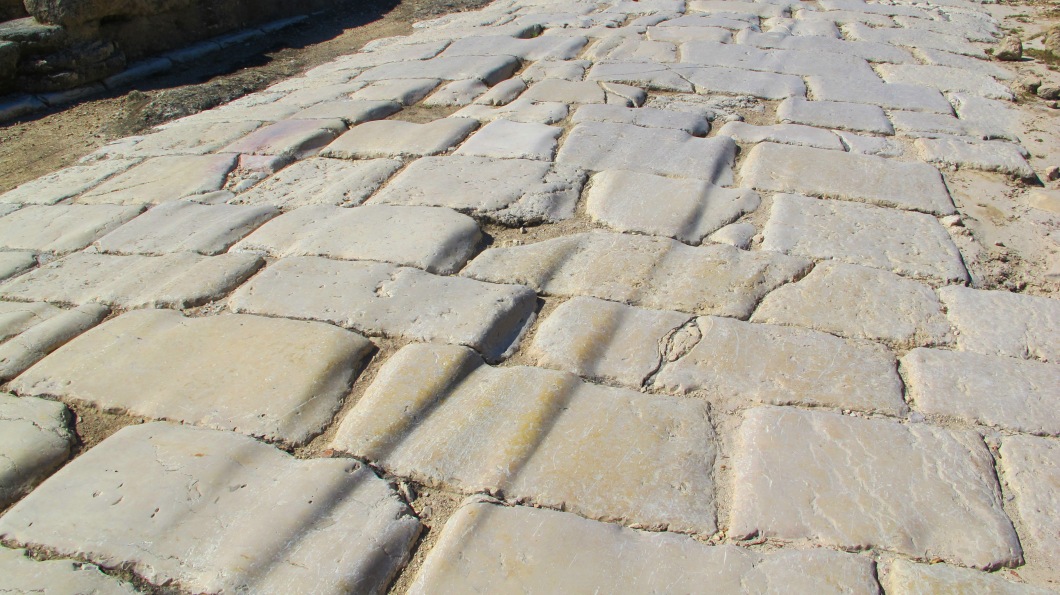
I’ve learned to pay attention when unusual co-incidences occur in my life. When the same book or the same topics pop up in random conversation and unexpected places I tend to wonder if there is a reason. The recurring topic this week was about people who have been deeply wounded by experiences in the church; the name that popped up is that of a man I haven’t thought about in years.
I was a naive sixteen-year old when I met him. He was the youth program director at church.
It was many years ago and I have long since forgiven, although forgiveness was not an easy or quick process. True forgiveness requires acknowledgment of the seriousness of the offense and I was in denial for a long time. I stumbled around until I found trustworthy people who could help.
Let’s just say he was not the person he wanted people to think he was. A chance encounter with a woman from out of town revealed more about him than he intended me to know. When he laughed nervously, shooed me away and told her I was just one of the kids I was devastated. From the vantage point of an adult who has heard this story too many times, it is clear he spent months grooming an underage girl for his own purposes. I fell for flattery and smooth talking.
I’ve known people who walked away from high speed head-on collisions and people who were permanently disabled falling out of bed. What happened to me might have been far milder or far more severe than what happened to others or perhaps to you. It’s not a contest. I’ll spare you the details save the one that really matters: it felt like utter betrayal.
My young heart was broken at the time, but eventually grateful for that unpleasant evening of truth revealed. The Lord intervened to get me out of that situation. Later the man asked if he could trust me to be discrete if we continued our “special friendship.” I said no, shut the door, and never saw him again.
Eventually I did tell a church leader. The response was to hand back my written testimony saying he didn’t want it in their records in case someone accidentally stumbled across it. The pastor assured me that my story would be kept absolutely confidential so as not to “expose my shame.”
For years I carried a burden of shame that was not mine. Then I handed it to Jesus and he set me free.
Memories of this time came up recently in the context of writing an article on David and Absalom and disappointment in leadership. I’ve let go of any expectation of repayment for that debt too, but I was curious. I wondered what this guy from my past was up to now.
When I googled his name news reports about a conviction on charges of fraud in a case involving millions of dollars appeared on my screen. Yes, it was the same guy. I felt neither anger nor glee. When I felt only pity for him and compassion for his family, I knew my heart had been healed.
The next day we met new friends over lunch. When I mentioned I used to attend a certain church the man across the table asked if I knew Mr. “X” when he was there.
“I did,” I answered.
“He was my business partner. He deceived me. Big time.” he said, with pain in his voice years after the event. He had also met Mr. X at church.
“There were a lot of things we didn’t know about him,” his wife added. “He was a smooth talker.”
“That he was,” I agreed.
I thought about this coincidence all week, wondering why I was running into his name again now, how he got away with deception for so long, and how many sitting doves he hurt. As I prayed the phrase that kept coming to mind was this: “I commend to you our sister Phoebe.” Puzzling.
“I commend to you our sister Phoebe.” I kept hearing it.
I knew Phoebe was included in the list of greetings in chapter 16 of Romans. She is first.
“I commend to you our sister Phoebe, a deacon of the church in Cenchreae. I ask you to receive her in the Lord in a way worthy of his people and to give her any help she may need from you, for she has been the benefactor of many people, including me.” (verses 1, 2 NIV)
I kept reading. There it was. The connection. After the greetings to men and women Paul obviously respected, comes a contrast, a warning:
“I urge you, brothers and sisters, to watch out for those who cause divisions and put obstacles in your way that are contrary to the teaching you have learned. Keep away from them. For such people are not serving our Lord Christ, but their own appetites. By smooth talk and flattery they deceive the minds of naive people. Everyone has heard about your obedience, so I rejoice because of you; but I want you to be wise about what is good, and innocent about what is evil.” (Verses 17- 19)
I compared the two descriptions. Phoebe is commended to the Romans. Paul vouches for her trustworthiness. He urges the church to receive her with honour and give her whatever help she needs.
The ones Paul warns the readers of the letter about are not worthy of trust. Paul tells the church in Rome not to receive them. In fact, in this case, he says to keep away from them.
 Phoebe was a deacon who travelled the Roman road from a town near Corinth to deliver Paul’s letter. She may have been familiar with the incident in Corinth in which Paul made it clear that a certain man’s behaviour was not to be tolerated in their midst. He suggested drastic action to turn this fellow around, and it worked. (1 Cor. 5)
Phoebe was a deacon who travelled the Roman road from a town near Corinth to deliver Paul’s letter. She may have been familiar with the incident in Corinth in which Paul made it clear that a certain man’s behaviour was not to be tolerated in their midst. He suggested drastic action to turn this fellow around, and it worked. (1 Cor. 5)
Phoebe was also a benefactor (prostatis, feminine form of proistemi) which is a stronger term than a helpful person who volunteers to wash dishes after a potluck. She was a female superintendant, a patron, a protector with the authority of a trusted guardian. Whatever gifts or resources she possessed she used to benefit others including, Paul notes, himself.
In comparison, the ones not to be trusted were not givers; they were takers. They preyed on the vulnerabilities of others to serve their own purposes, their own appetites. They placed obstacles in the way of people getting closer to a relationship with Jesus.
I believe the Lord has been showing me the importance of commending those trustworthy followers of Jesus who have a record of loving generosity and a proven desire to work for the benefit of others. Putting others ahead of themselves is a characteristic of guardians or protectors.
The topic of how to demonstrate both mercy and justice is more complex than I have room for here. Keeping Jesus Christ central is the most important factor. His greatest compassion was for the betrayed and mistreated. He lashed out at those who used the covering of religion to serve their own purposes.
Jesus is willing to heal our wounds and surround us with love that lets us know we are perfectly safe. He restores that which has been stolen and replaces our losses with his hope – the hope that does not disappoint.
I asked the opinions of several people I see as mature believers before publishing. I was shocked by how many had their own stories of betrayal. For some the mere mention of the topic was painful. I removed a more detailed description of events because this is not about me alone. Their stories are important. You story is important. If this has triggered a memory for you Ishshah’s Story has a resource page (here) you might find helpful. We would also urge you to seek the help of someone in your area, a trustworthy person like Phoebe, who can guide you through the healing process.
Jesus absolutely loves you. His hope is fearless.


Thank you for your bravery in sharing this with us.
LikeLike
Thank you, Paul. I’m sorry I somehow missed seeing this comment earlier.
I wonder if “bravery” becomes less of a necessity as we shed the shame that crushes identity. Christ has set me free from the label foisted on me by someone, other than him, that I was a victim and a person not worthy of respect. He also forgave me for all my sin, including whatever part I had in this, so whom have I to fear? Things that happened in the past do not determine the way God sees me.
Learning to walk in our identity in Christ takes some courage as our ability to trust is healed and restored, but knowing we are loved perfectly by the One who knows us best is very freeing.
LikeLiked by 2 people
Phoebe means bright, radiant, and pure. She might have also been betrayed, at some point but the radiance of Jesus in her gave her purity. Most of us have had betrayals. It is only through forgiveness with the cleansing power of the blood of Jesus and the healing of our wounds in our soul, with the resurrection power that we become a radiant light to others. So good to know you were healed, Charis. Your story is powerful!
LikeLike
Yes, the radiance of Jesus restores purity.
LikeLiked by 1 person
Reblogged this on Charis: Subject to Change and commented:
Some blog posts are written in crayon and some in blood. The process was not easy for this one. It was years in the making but full of reward. Blogging at Ishshah this week.
LikeLike